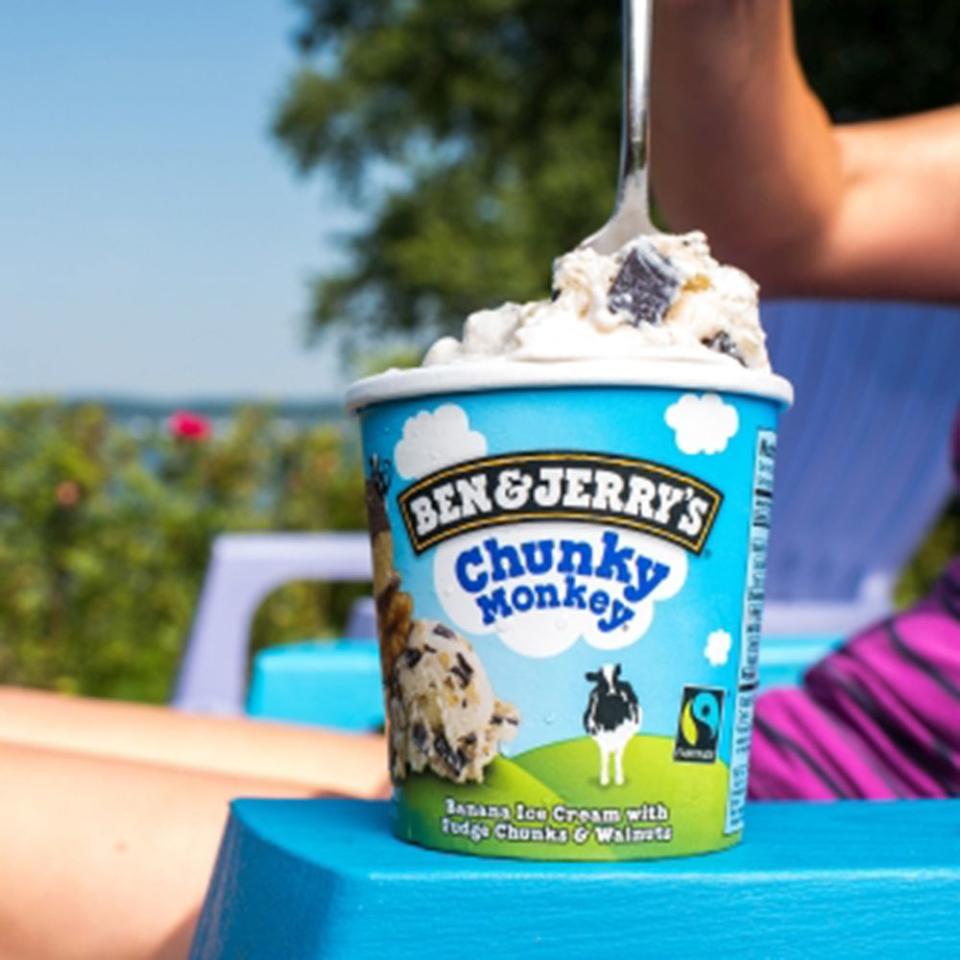Ben & Jerry's Removes Claim That Their Ice Cream Comes From 'Happy Cows' Amid Lawsuits

Ben & Jerry’s will no longer say that their famous ice cream comes from “happy cows” amid ongoing litigation with the Organic Consumers Association (OCA) and the environmental advocate James Ehlers.
Both claim in their respective lawsuits that the Vermont-based ice cream company is mischaracterizing their environmental and animal welfare practices, as well as using deceptive labeling to mislead consumers into thinking their dairy products come solely from “happy cows.”
The former suit was filed in July 2018 in Washington D.C. Superior Court, while Ehlers’ class-action suit was filed in the U.S. District Court in Vermont in October 2019. He claims that many of the farms that produce the milk and cream are factory-style, mass-production dairy operations, and says that a heading on the Ben & Jerry’s website, which states: “Basic standards for being a Caring Dairy farmer (required for all farmers),” is particularly misleading.
RELATED: Ben & Jerry’s Is Releasing a New Netflix & Chilll’d Flavor Just in Time for Cuffing Season
While Ben & Jerry’s initially tried to dismiss the OCA lawsuit, arguing that they weren’t deceiving “reasonable consumers,” they still ended up removing the statement in question from labels and wiping the faces of the cows on their packaging, leaving them with “no discernable expression,” according to Reuters.
As a result, the ice cream company said those suing lack standing to seek future relief. “They did not look happy to begin with,” Ben & Jerry’s said, joined by their parent Unilever Plc.

In their motion, defendants Ben & Jerry’s and Unilever proposed the question, “How happy is a cow? What should be the first line of a riddle is now the major premise of a lawsuit…to the extent a reasonable consumer bought Ben & Jerry’s ice cream because he wanted to support the humane treatment of cows, he got exactly what he paid for.”
They continued their defense, explaining that while “[Ehlers] alleges that the website…led him to believe that all the dairy Ben & Jerry’s uses is exclusively ‘sourced from ‘happy cows’ on special farms’…the website…does not make this claim. It contains dozens of links that provide information on Ben & Jerry’s social and environmental programs, including their ‘Caring Dairy’ program.”
The motion also says the term “happy cows” is “non-actionable puffery,” stating that “happiness cannot be measured objectively, and Ehlers could not take a cow’s deposition to ask how it feels.
RELATED: Ben & Jerry’s Announces That CBD Ice Cream Could Be Coming Soon
OCA International Director Ronnie Cummins said in a statement, “Unilever reportedly spent more than $9 billion on advertising in 2017 alone…A significant portion of that was spent to create the false perception that Ben & Jerry’s is committed to a clean environment and high animal welfare standards.”
The also accused the ice cream company of using the allegedly false claim to charge more for their product.
WATCH: Ben & Jerry’s Co-Founders Arrested During Protest at the U.S. Capitol
Ben & Jerry’s responded in a statement to McClatchy News, arguing, “While we haven’t done an official survey of our cows’ happiness, we’re proud of the work we’ve done with Vermont’s family farmers over the past 35 years, and we believe our Caring Dairy program is the most progressive in the industry.”
“We’re committed to building a resilient, regenerative dairy supply that benefits animals, people, and the planet,” they continued.
RELATED: Ben & Jerry’s Is Now Selling Snackable Packs of Their Cookie Dough Chunks
Still, Cummins called the removal of the “happy cows” claim a “victory for consumers,” but only “one small step toward more honest representation of the Ben & Jerry’s brand.”
He added, “OCA will continue, through our own ongoing litigation against Ben & Jerry’s and their parent company, Unilever, to push for Ben & Jerry’s either to live up to their remaining marketing claims, or to remove all claims that have no basis in fact.”

